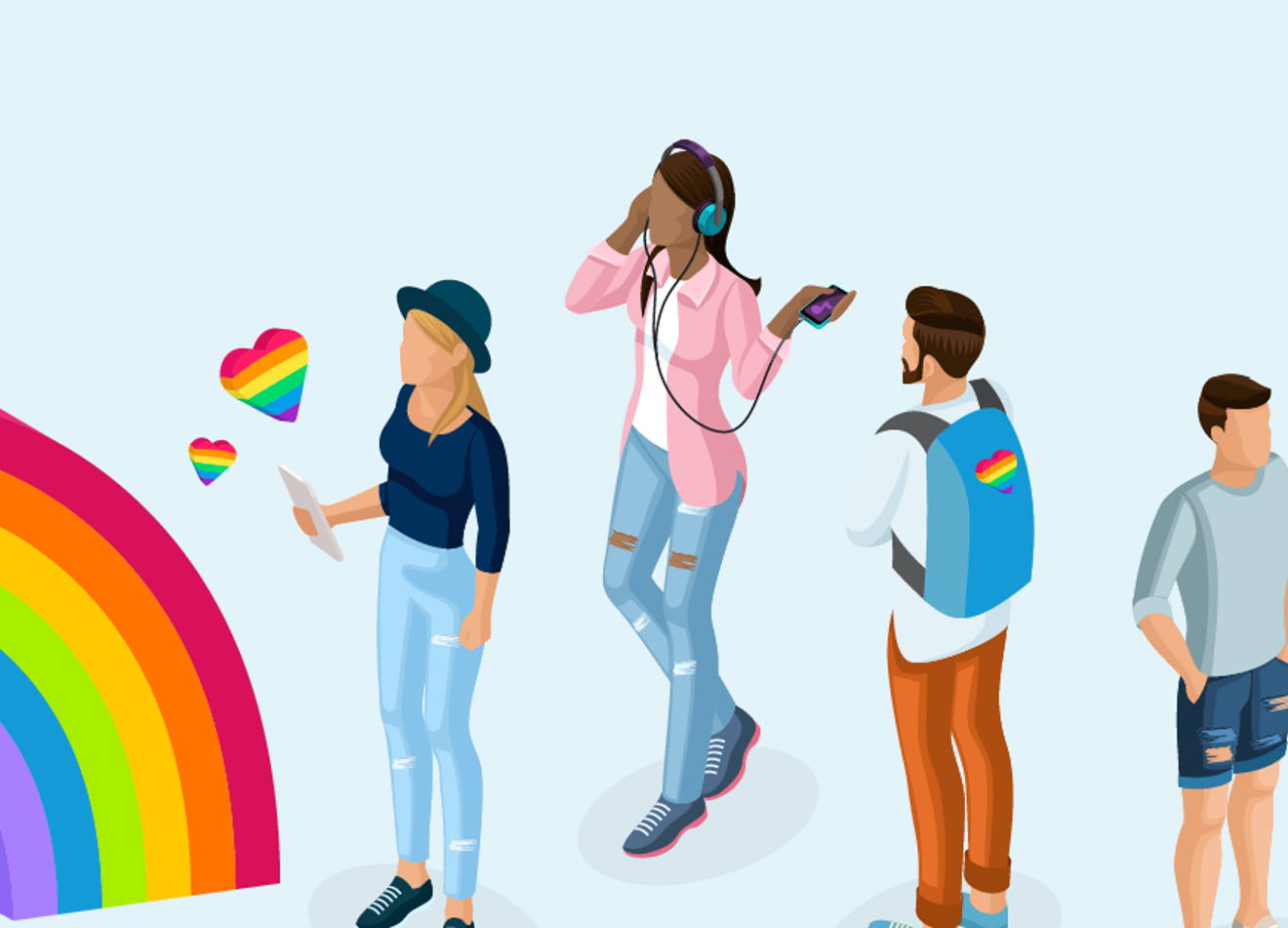As part of our celebration of LGBT+ History throughout February, we've selected a few prominent figures from tv & cinema to feature around our office.
Asia Kate Dillon
Asia became the first non-binary actor to play a main character in an American show, as part of the drama Billions, before staring opposite Keanu Reeves in John Wick Chapter 3. Acting is still perceived as a binary occupation, particularly when it comes to awards, but Asia’s success may go some way to changing that.
Elliott Page
Well-known Canadian actor Elliot’s breakthrough role came in Juno before numerous other films including the X-Men franchise. In 2014, when he was presenting as female, he came out as gay, stating in a speech at the Human Rights Campaign’s Time To Thrive event, “I’m here today because I’m gay, and because maybe I can make a difference, to help others have an easier and more hopeful time.” Elliott subsequently came out as a trans man in 2020, appearing on the cover of Time magazine in 2021, the first openly trans man to do so.
Alan Turing
During the Second World War, Alan was instrumental in cracking Nazi codes to help defeat Germany and its allies, actions immortalised in the 2014 film, The Imitation Game. Despite this, he was later prosecuted for homosexual acts, and chemically castrated. An official public apology was issued in 2009 by UK Prime Minister Gordon Brown, with the Queen granting a posthumous pardon in 2013. In 2017, a UK law was introduced, which retroactively pardoned men cautioned or convicted under historical legislation criminalising homosexual acts, nicknamed “Alan Turing law.”
Sir Ian McKellen
Sir Ian has had an acting career spanning seven decades, ranging from Shakespeare to cinematic blockbusters. He was knighted in 1991 for services to the performing arts. In 1998, Ian came out as gay during a BBC radio programme at the time the controversial Section 28 legislation was being considered in UK Parliament. This action could have damaged his career, but Ian was undeterred. He is an LGBTQ activist, having co-founded Stonewall UK, and has never been afraid to highlight discrimination. A case in point was his TV interview in Singapore in 2007, when he mocked local anti-homosexual laws by asking where he could find a gay bar.
RuPaul Charles
The world’s most famous drag queen is best known for producing RuPaul’s Drag Race, a huge worldwide success. For this, RuPaul has received twelve Primetime Emmy Awards, more than any other person of colour in the history of those awards. Outside of Drag Race, RuPaul has released fourteen studio albums and featured in many films and TV shows. RuPaul has described drag as “all about taking something that’s not beautiful and making it beautiful” and is seen as an icon across the world.
Laverne Cox
American actress and LGBT advocate, Laverne was the first transgender person to be nominated for a Primetime Emmy Award in an acting category. She was the first openly transgender person to appear on the covers of Time, British Vogue, and others. Laverne is a prominent equal rights advocate and public speaker, and in 2016 received an honorary degree from New York City’s The New School for her progressive work in the fight for gender equality.
Jackie Forster
Born in 1926, Jackie was a UK actress and household TV personality. In 1969 following her divorce, Jackie publicly came out loudly at London’s Speaker’s Corner, and from then on became a powerful advocate for lesbian rights. She was a member of the Minorities Research Group, the first British organisation advocacy group for the lesbian community, and in 1970 co-founded the Gay Liberation Front. In the years leading up her death, Jackie dedicated herself to the Lesbian Archive and Information Centre, one of the most significant LGBT historical collections in the UK.
Nancy Cárdenas
Nancy was a Mexican actor, poet, and writer. In 1973, during a discussion on homosexuality on TV, she came out, becoming the first out lesbian public figure in Mexico. The following year, she founded the Mexican Homosexual Liberation Front. As one of very few publicly out women in Mexico, to increase visibility of lesbians, Nancy attended lesbian conferences in Latin America and the Caribbean, wrote and produced lesbian plays, and translated and adapted many lesbian works for Mexican audiences. In 1992 she founded an organisation for adults and children with AIDS, and remained an activist and prominent figure in Mexican theatre until her death in 1994.



